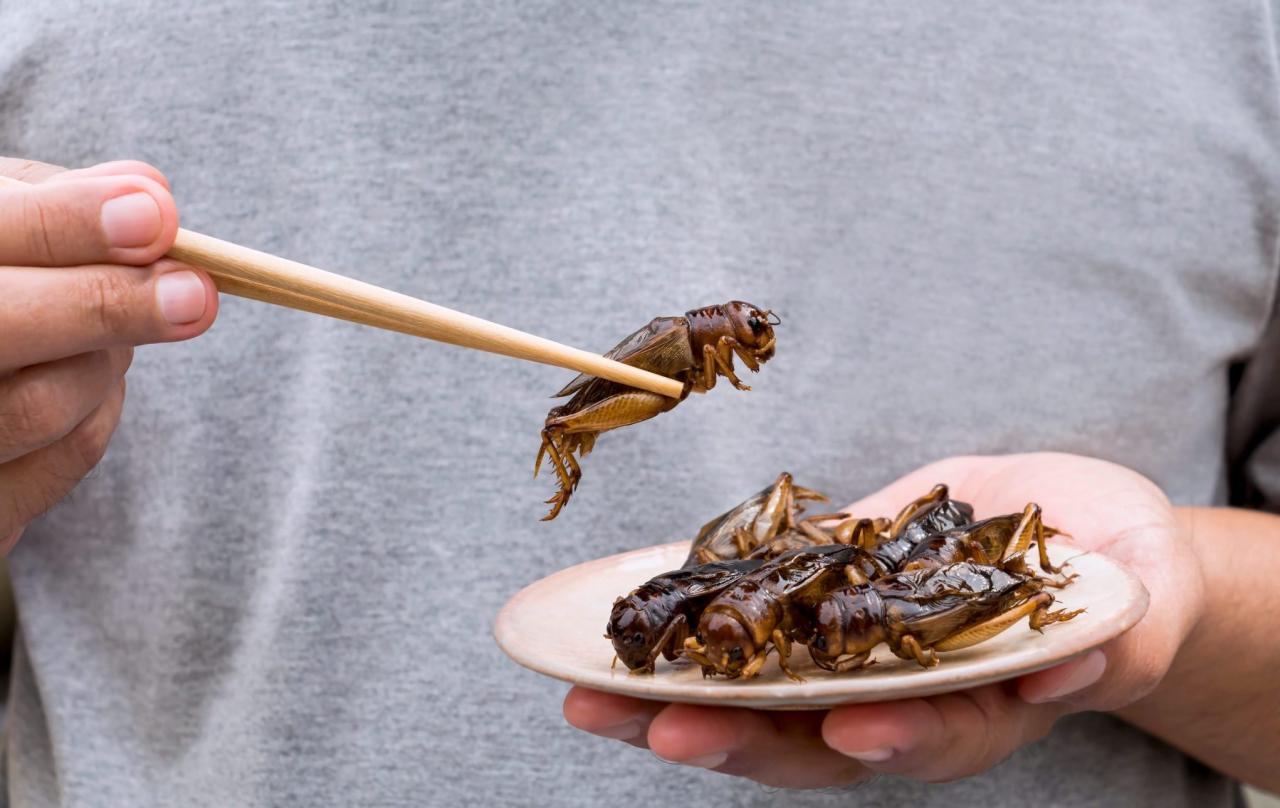[ad_1]
Making you “eat the bugs” satisfies the liturgical dimension of liberalism—the shattering of lengthy-held taboos and prejudices.
Every few months a serious information web site runs a bit telling you to eat bugs. The headlines are nearly all the time the identical. “Insects Are Food Source of the Future, Experts Say”; “Want to Save the Planet? Eating Bugs May Be Part of the Solution”; “‘It’s Good for the Earth’: Why Climate Scientists Urge Americans to Eat More Bugs.” And so on. The articles normally cite local weather change as the purpose to upend the American weight loss program, which—for now—is heavy on beef and lightweight on cicadas.
The New York Times ran a 3-half video collection on its opinion web page final week imploring Americans to eat bugs to save lots of the planet. The first video mentioned the environmental affect of Big Agriculture—methane from cows, air pollution and water injury from manufacturing unit farms, deforestation from the creation of latest farms—and denounced the agriculture lobbyists arrayed towards environmental rules.
The second video takes viewers on a tour of a poultry farm, inviting them to see the “cost of cheap chicken.” The farm, like most farms, is soiled. The chickens are held in shut quarters with little mild and minimal area. Many of the chickens have distended breasts from an absence of train. It is disagreeable to observe, notably throughout its conclusion, when a farmer described having entered into an settlement with a big poultry agency that successfully requiring him to deal with his livestock poorly. The points in the business are structural, we’re advised. “In order for the chicken and the farmer to have a more dignified life,” one in all the Times‘s experts said, “chicken should be closer to $6 a pound, not a dollar a pound.”
To these and other evils in the agricultural industry, the Times‘s third video suggests the remedy: “Eat more bugs.”
“A growing number of chefs, researchers, and entrepreneurs are urgently working toward a common goal,” the narrator begins, “getting us to eat more bugs.” Of course, the fact that “a growing number of chefs, researchers, and entrepreneurs” have come to a consensus on any matter of public policy is irrelevant, but the Times proceeds, noting that insects “offer a sensible alternative to the animals we typically eat.” The video features two “experts,” two insect “farmers,” and one chef who cooks insects at—this is the real name of his restaurant—Brooklyn Bugs. The experts interviewed said that bugs are a more “efficient” form of protein than traditional protein sources like cattle and chicken, and insect farming is better for the environment than traditional forms of agriculture.
Even if it were true that eating bugs would reduce global temperatures by one degree centigrade in the coming century, that alone would not be a good reason to eat insects. The environment exists for man, not man for the environment. But it turns out that Americans’ meat consumption is just not accountable for a good portion of world greenhouse gasoline emissions.
The United States is responsible for someplace round 13 p.c of the world’s greenhouse gasoline emissions, and 10 p.c of our complete emissions come from the agriculture business. Scientists estimate that if each single American turned a vegan, emissions in the agriculture sector would drop by 28 p.c. If each American ate bugs as an alternative of rooster and beef, we might minimize annual world emissions by lower than 0.01 p.c.
There are different causes the Times would possibly need to transfer away from conventional agriculture. The bug-farmers proven in the video—mushy-confronted, vest-carrying males with faculty levels and uncalloused arms—appear like compliant Democratic voters. The common cattle rancher can’t clarify the distinction between “gender” and “sex.” The “insect farms” proven in the video—massive, Bauhausian buildings in the coronary heart of city metros—are seated in progressive territory reasonably than the hidebound American hinterlands.
Making you “eat the bugs,” as the meme would have it, additionally satisfies the liturgical dimension of liberalism—the shattering of lengthy-held taboos and prejudices. The Times insists that “Culture, not taste, often defines what’s edible,” implying that Americans’ aversion to consuming bugs is parochial and irrational. That could be true. But some prejudices are good. Edmund Burke mentioned folks ought to “cherish” their prejudices—the unstated assumptions and attitudes imparted by their tradition—and “the longer [those prejudices] have lasted and the more generally they have prevailed, the more we [should] cherish them.”
I’m prejudiced towards consuming bugs, and however the Times‘s series, that’s a prejudice I cherish an awesome deal.
[ad_2]
Source hyperlink















